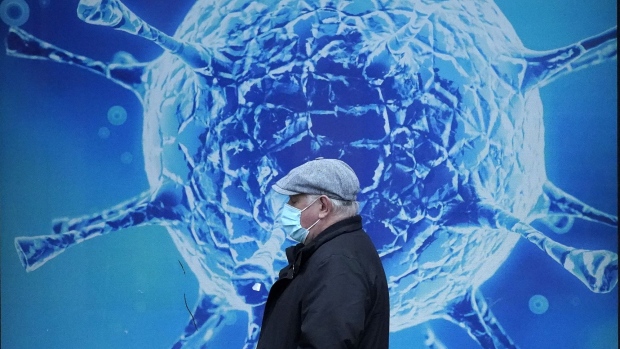Dec 8, 2021
Covid-19 Set Back U.K. Cancer Research, Trial Participation
, Bloomberg News

(Bloomberg) -- The number of U.K. cancer trial participants dropped 60% last year as the pandemic aggravated issues around funding, staff shortages and access to medical treatment, according to a report by the Institute of Cancer Research in London.
Cancer trial recruitment in England fell to 27,734 in the year to April 2021, from an average of 67,057 over the previous three years, research showed. The number of patients participating in trials declined for every type of cancer analyzed except brain cancer and radiotherapy.
Although Covid-19 has hamstrung clinical trials globally, cancer patients are especially affected as a sixth of them rely on trials for their treatment. This is adding an extra burden to the U.K. health system that already has over 2 million on the waiting list for cancer therapies.
“Clinical trials are the single best way to turn advances in science into patient benefits,” said Nick James, a professor of prostate and bladder cancer research at the ICR. “But trial recruitment has plummeted during the pandemic, slowing the pipeline of new treatments and robbing people with cancer access to potentially life-saving medicines.”
Even before the pandemic, recruitment for trials was hampered by the so-called postcode lottery that leads to an uneven distribution of money for clinical research between hospitals in different districts. Other barriers include the lack of rapid genetic testing by the National Health Service, which would allow more precise matching of patients to relevant trials, and poor communication strategies.
The ICR said that all U.K. hospitals should be staffed with trained specialists in research and development, pathology and radiology, among others. At the same time, it called for clearing special time for research for oncologists in their schedules.
“We need to learn the lessons from Covid-19,” James said. “It’s clear that bureaucracy and regulatory barriers for clinical trials often do more harm than good -- hindering our progress in developing the next game-changing cancer treatments.”
©2021 Bloomberg L.P.